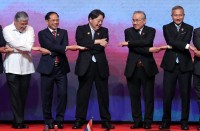Incident has legal implications and shows China’s increasing hubris, says Prof. Batongbacal
(Eagle News) – China’s recent use of its Coast Guard and Navy ships in the Philippines’ Exclusive Economic Zone is a “violation of Philippine sovereign rights” and its recent actions of chasing a Philippine civilian boat show’s China’s increasing hubris to enter Philippine waters, according to a maritime law expert.
The director of the University of the Philippines Institute for Maritime Affairs and Law of the Sea, Prof. Jay Batongbacal said that these actions by China is quite alarming.
He said that the presence of the Coast Guard and Navy ships in what is considered part of the Philippines’ EEZ is a clear violation of the country’s rights to its territorial waters.
In fact, the presence of these Chinese Coast Guard and Navy vessels entering into the Philippines EEZ complicates the situation further and has legal implications, Batongbacal said in an interview over the NET25 program, Balitalakayan.
“Medyo kumplikado ang mga huling nangyayari. Mayroon po itong legal implications. Kabilang dito ay yung mismong presence ng China Coast Guard, tsaka ng Chinese Navy doon sa lugar. Dahil malinaw na nandoon sila, still in violation and in contravention of the Philippines’ sovereign rights sa kanyang exclusive economic zone,” he said.
“Hindi sila dapat nandoon. At yung mga napabalitang nangyari ay hindi dapat mangyari,” he said referring to the reported action of the Chinese Coast Guard, and vessels belonging to the Chinese Navy that chased a local boat carrying a crew of ABS CBN.
Batongbacal said that this recent incident shows China’s impudence at this time that it has no qualms to use its Navy in tandem with its Coast Guard in the West Philippine Sea.
“Nakita natin na para sa kanila, wala nang pinagkaiba ang civilian at military enforcement ika nga, magkatuwang na talaga ang China Coast Guard at saka Chinese Navy, at hindi na sila natatakot. Ginagamit na nila pareho ito sa mga civilian vessel tulad doon sa news crew na kanilang hinabol,” he said.
–PHL has to continuously assert maritime rights-
The Philippines’ diplomatic protest and the Department of National Defense’s insistence for China to remove its vessels in Julian Felipe Reef also had an effect as China reduced the number of its vessels there from 220 to 44, and then to around 30, Batongbacal noted.
If the Philippine government would continue with this position demanding that Chinese ships leave its territorial waters, China would leave. Batongbacal said that in fact many of the Chinese ships already left the Philippine Exclusive Economic Zone.
“Inaasahan natin na kung magpapatuloy ang ganitong posisyon ng gobyerno ay tuluyan na silang aalis. Yung karamihan naman, nakita na iba, na tuluyan nang lumabas sa ating exclusive economic zone. So kahit paano meron siyang epekto,” he said.
But the maritime law expert said that the Philippines should not let its guard down since this action of China leaving the Julian Felipe Reef and the Philippines’ EEZ could just be temporary.
“Kung baga para lang mawala ang atensyon. So kailangan tuluy-tuloy pa rin tayo sa paninindigan doon sa ating pagkapanalo doon sa arbitration,” he said.
Batongbacal also noted that China is trying to up its game in the South China Seaina by taking advantage of their numbers, using swarms of its vessels to occupy waters such as what they had tried to do in the Julian Felipe Reef.
The 220 Chinese vessels in line formation was like a virtual artificial structure or “floating island” already. It was good that the Philippines was able to insist its position which China heeded when most of its ships left the reef, he said.
The problem is China continues to maintain its presence in the West Philippine Sea. And the Philippines has to strengthen its air and maritime capability to patrol and protect its waters since China, based on its past actions, would continually encroach and mass up once again when they see an opportunity to do so, he said.
-PHL should strengthen alliance with other countries to protect WPS-
He said that it is important for the Philippines at this point to maintain its strong alliance and partnerships with other countries which have a common interest in the West Philippine Sea so that freedom of navigation in the area would be maintained.
China also has to realize it could not put forward its interests in these disputed seas by violating long-respected principles on freedom of navigation and other maritime laws and conventions, such as the UNCLOS or the United Nations Convention on the Law of the Sea (UNCLOS), he said during the interview.
The Armed Forces of the Philippines (AFP) already expressed concern about this latest report of harassment by the Chinese Navy vessels and the Chinese Coast Guard on a boat carrying Philippine media.
The Department of Foreign Affairs also issued a statement. It said that it would again raise this matter with the Chinese government if this is proven true.
“Philippine authorities are looking into reports of Chinese vessels chasing after a television crew aboard a Philippine vessel in the West Philippine Sea. If proven to be true, the Department of Foreign Affairs will raise the matter with the Chinese government,” a DFA statement said.
“In the meantime, the Department is thankful that the crew and the Filipino vessel are safe,” it said.
“The public is reminded to coordinate with Philippine authorities when planning a visit to the Kalayaan Island Group in the West Philippine Sea,” it added.
The media crew was travelling to Second Thomas Shoal in the contested Spratly Islands on Thursday when their vessel was allegedly chased by a Chinese Coast Guard boat and two attack craft.
(Eagle News Service with a report from Agence France Presse)








